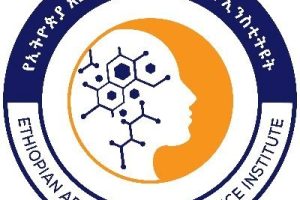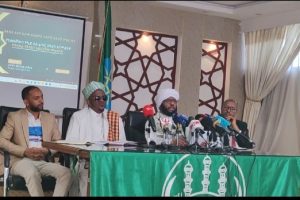
Federalism is a cornerstone for building a nation made up of diverse ethnic groups through its self and shared rule system. Hence, it is preferable system of governance for a multi-ethnic country like Ethiopia.
And yet, issues relating to its implementation and practical gaps are creating problems for the country, experts in the field say.
Despite two decades of implementation, there are still some who blame the federal system in connection with the unrest and violence that erupted in some parts of the country in the recent times.
According to the experts, the problems does not have any link to the nature of the system; rather political dissatisfaction of the people, practical implementation drawbacks, unfair distribution of resources, weak sensitization and good governance problems are the main causes of the unrest.Gebru Geberesilasie, Communi- cation and Public Relations Director with the House of Federation, told The Ethiopian Herald that federalism is suitable system of governance to create one strong country out of diversified society. Ethiopia’s federal system guarantees this opportunity for the country’s nations, nationalities and peoples, he said.
Gebru said that federalism is source of unity; and by applying the system, it is meant that Ethiopia has accepted diversity as source of unity, strength and resource. He added that still the sensitization and awareness creation work is too weak, which creates gaps within the society in understanding the nature of the system.
Sisay Mengiste (PhD), Addis Ababa University School of Law and Governance Instructor, also told The Ethiopian Herald recently that federalism by its nature is suitable for diversified society.
About 40% of the world population, living in 28 countries, most of them diversified countries, live under federal system, Dr. Sisay said before adding that these countries are relatively peaceful and democratic. Hence, it is suitable system of governance for Ethiopia, if implemented properly.
According to Dr. Sisay, while federal system is based on agreement of sovereign states to create strong state, countries that follow unitary system of governance shifted to federal system, or a coalition of the two system, in a bid to handle internal disagreements better. This shows that federalism is an instrument of conflict management, and source of unity in diversified society.
Gebru noted that federalism gives an opportunity for political empowerment and political participation for the country’s people by promoting self and shared rule, and also by diffusing power to different centers.
A paper prepared by the House of Federation entitled “Multi-nationalism, Nationality and National Identity”, on the occasion of the 12th Nations, Nationalities and Peoples day, noted that Ethiopian federal system was built by capitalizing the good values of the country whilst at the same time considering the past regimes’ mistakes.
Hence, the system has addressed the major mistakes of past regimes, and put in place a base to create a single political and economic community, while guaranteeing of the equality of every nation, nationality and peoples.
According to the paper, the federal system diffuses power, increase public participation, respect all cultures, languages and traditions. This features of the system has helped it to introduce democracy in Ethiopia, and lead the country to achieve dramatic economic development.
Further, the paper argued that federalism creates democratic nationalism in the country, which is the basis for equality of all nations, nationalities and peoples.
Ethiopia’s recent impressive economic development, fast infrastructural expansion and democ ratization process are products of the system, which also ensured comparative peace and stability in the country, Gebru stressed.
As to Gebru, there were questions of self-rule, equality and identity in Ethiopia, which the system has answered. For him, the Ethiopia’s rapid economic, social and political changes are the outcomes of federalism.
although federalism is suitable for the country, Ethiopia’s federalism invests more on ethnic identity than shared identity. The way the government handled the diversity, structure and implementation of political administration, during the past years, along with its policies and strategies, have helped create the conflicts and unrest in the country, he said.
Absence of strong and free governmental institutions to respond to the public demand, and the practical implementation gaps are the main problems of Ethiopia’s federal system.
Dr. Sisay stated that Ethiopia’s federalism should incorporate the strong values and shared history of the people of the country, and ethnic identity should balance with national identity to strengthen the ties between the people.
He said that federalism becomes more effective as it go through ups and downs; and to become a perfect governmental system in Ethiopia, it is a must to pass through a gradual process. Poor culture of democracy, practical problems, unfair political decisions and unequal distribution of resources are the main challenges facing the federal system in Ethiopia.
Gebru, for his part, believe that weakness in awareness creation to sensitize the system to the people, misunderstanding on the concept of self-rule, and political backwardness are the system’s main challenges.
Both Dr. Sisay and Gebru agree that properly implemented federal system is source of strength, tolerance, unity, peace and development for Ethiopia, and the positive outcomes of the country are results of the system.
The system which has benefited the country in many ways should not be blamed for the recent unrest that erupted in some parts of the country, as the causes to the conflicts are other political problems. And yet, the system has to give priority investing on shared identity and history of the country.
Herald December 8/2018
By DARGIE KAHSAY





